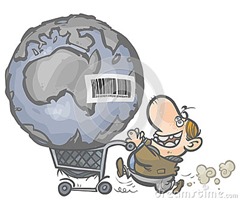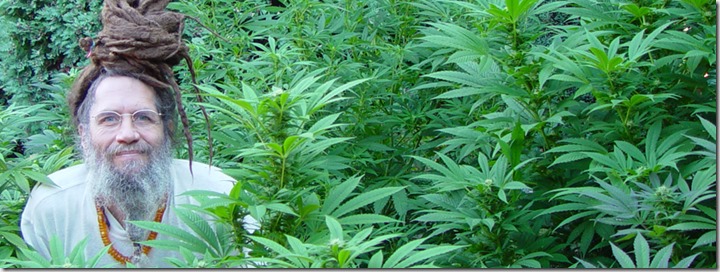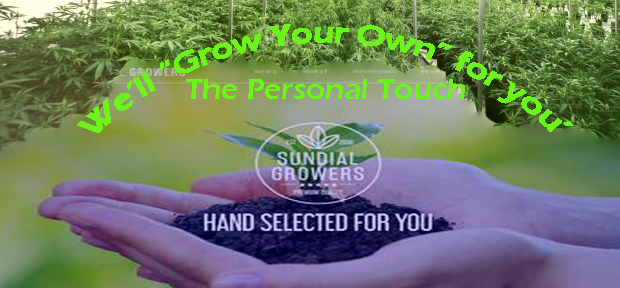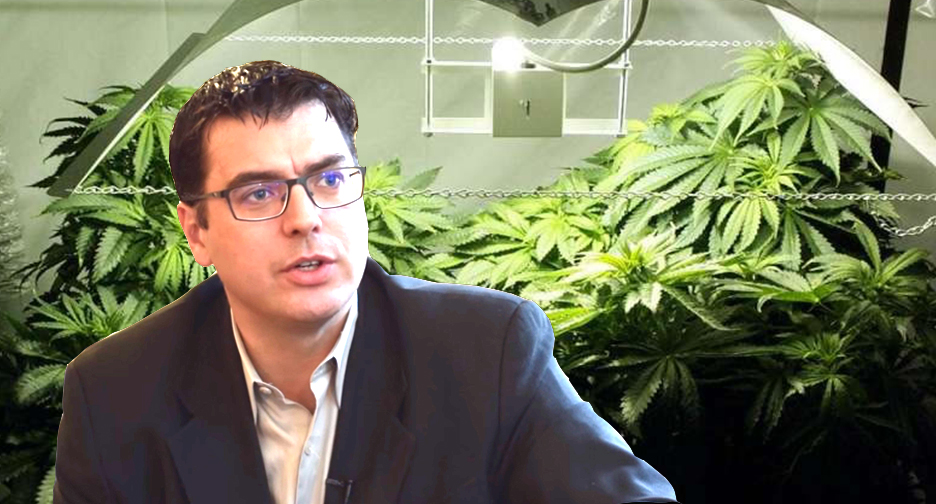Allowing Home Gardens Must Be Foundational To Any Future Cannabis Regulation Policy
By Judith Stamps
The title you’ve just read is the conclusion to today’s blog. To arrive at it, I followed this series of thoughts.
1. PROPERTY:
In the early modern era—17th and early 18th centuries—political theorists asked themselves this question: If land, food plants and other useful items are provided by nature, how does anyone justify calling them private property? This was the age of high colonialism, and colonialism entails mass appropriation, hence the question. John Locke, deeply influential on founders of all modern states, solved it this way. You transform nature into private property by adding value to it. Apples, for example, become yours when you take the time to pick them and prepare them for eating. Accordingly, governments, in Locke’s view, exist to protect life, liberty, and this definition of property.
Locke’s definition is well suited to a colonial era. It provides a basis for taking land from native inhabitants: usurpers can call it theirs if they can claim to be adding more value to it than the natives ever could. At the same time, it evades the subject of monopolies. There is nothing in the definition to address this question: What if someone fences the orchard and keeps everyone else out? In effect, it renders inequality invisible.
Fast forward to the revolutionary era of the late 18th century and you get this counter-claim by Jean Jacques Rousseau: “The first man who, having enclosed a piece of ground, bethought himself of saying ‘This is mine,’ and found people simple enough to believe him, was the real founder of civil society.” A polar opposite to Locke’s view, it states: governments are there to protect land and resource-appropriation, no matter how it came about.
 These poles are our philosophical heritage. Pole One: Government is there to protect the property of hard working people (Inequality? What inequality?); Pole Two: Government is there to protect thugs. One would have hoped that libertarians, or anarchists, who took up the subject in the 19th century, would have mapped a useful route between or around these poles. The libertarian/anarchist view, after all, holds that individual liberty, autonomy and freedom from big government, should be the objective of every good society. But alas, no such map exists. Instead there are left leaning libertarians who believe that the earth’s resources belong to everyone, and favour co-operative associations. And there are right leaning libertarians, common in the US and elsewhere from the mid 20th century. The right leaning version goes: I’m libertarian in personal matters like religion, or sexuality, or favourite medicinal plants, but conservative in economic matters. Conservative in economic matters means: I believe in free markets, and support corporate capitalism. Next time you hear people tell you that they are libertarian, ask them how they stand on the right to buy up and control huge swaths of natural resources.
These poles are our philosophical heritage. Pole One: Government is there to protect the property of hard working people (Inequality? What inequality?); Pole Two: Government is there to protect thugs. One would have hoped that libertarians, or anarchists, who took up the subject in the 19th century, would have mapped a useful route between or around these poles. The libertarian/anarchist view, after all, holds that individual liberty, autonomy and freedom from big government, should be the objective of every good society. But alas, no such map exists. Instead there are left leaning libertarians who believe that the earth’s resources belong to everyone, and favour co-operative associations. And there are right leaning libertarians, common in the US and elsewhere from the mid 20th century. The right leaning version goes: I’m libertarian in personal matters like religion, or sexuality, or favourite medicinal plants, but conservative in economic matters. Conservative in economic matters means: I believe in free markets, and support corporate capitalism. Next time you hear people tell you that they are libertarian, ask them how they stand on the right to buy up and control huge swaths of natural resources.
2. COMMODITIES:
When democracy meets corporate capitalism, democracy and personal liberty lose. One of capitalism’s most egregious faults is its ability to turn natural, useful, and essential products into commodities. A related fault is its propensity to generate, and even celebrate, waste. Commodity and waste are intertwined. Consider this. Objects made for use—containers, clothing, furniture, appliances, baby carriages—could be constructed to last for decades and beyond. But commodities are not made primarily for use. They are made to exchange for money. Things made solely for money are built poorly, and trashed regularly. There are, to be sure, fine manufactured things—for the few that can afford them. Mass commodities, on the other hand, are fused to a monstrous, skillfully executed advertising industry that generates fashion—the reason to trash stuff. Similarly, food pure and simple is there to meet nutritional needs. But commodities can be labeled ‘food,’ whilst meeting barely any nutritional need. This labeling breaks our connection with our bodies, and with the natural world. Commodities are cheap, create wealth for an ever-shrinking minority, and prey on middle and low-income citizens. Commodities, through their advertisers, tell us what we need, and even who we are. To the extent that they draw us in, they enslave us.
The cannabis friendly activism that characterized the social movements in the 1960s and 70s was decidedly anti-corporate. It gave us the Whole Earth Catalogues: Access To Tools. It favoured co-operatives, collectives, and non-profit ventures. It favoured small, handicraft production of almost everything. It was, accordingly, anti-commodity. Over the ensuing decades, cannabis activists have banded together to produce fine plant strains, super medicines, and excellent programs in public education. They’ve changed laws. They’ve set us on road to legalization, or so it seems.
3. CANNABIS TODAY:
But a survey of the landscape today shows that cannabis producers are not likely to weaken the polarity on private property, government, or commodity production. They, too, appear to come in left leaning and right leaning versions. On the left are medical dispensaries that are not for profit compassion clubs, or buyers’ co-operatives. They are patient oriented. On the loony right, Canada has federally Licensed Producers (LPs), squeezed into a heavily capitalized mould, unable to meet patient needs for low prices. In Washington State medical dispensaries are being hounded out of existence by commercial shops that see them as competition. Seattle, Washington is home to Privateer Holdings a private equity firm that focuses on cannabis-related companies. Privateer owns LP, Tilray; Tilray has just downsized, dismissing a quarter of its employees. That’s business. Somewhere in between are privately owned dispensaries and, in places, shops, run as businesses. And then there are unregulated growers and sellers. Many care about quality; some don’t. Taken in sum, business magazines call it the Green Rush.
 For Washington State, Privateer, and the Green Rushers everywhere, cannabis will be a commodity, traded like any other. In publicly traded companies, shareholder profits come first, not patients or customers. Public trading in commodities drives amalgamation: Canadian LP, Tweed, a publicly traded company, has just acquired Canadian LP, Bedrocan Canada. Shareholders will want growers to focus on strains that mature quickly, and to super feed them. It’s hard to imagine that such practices will not affect quality, medicinal and elective. Commoditization may bring a narrowing of available strains generally, or of strains priced reasonably. We will see branding: Marley, Willie Nelson. We could see destructive fashion trends. Ever wonder what the ‘in’ people are toking? Care to start wondering?
For Washington State, Privateer, and the Green Rushers everywhere, cannabis will be a commodity, traded like any other. In publicly traded companies, shareholder profits come first, not patients or customers. Public trading in commodities drives amalgamation: Canadian LP, Tweed, a publicly traded company, has just acquired Canadian LP, Bedrocan Canada. Shareholders will want growers to focus on strains that mature quickly, and to super feed them. It’s hard to imagine that such practices will not affect quality, medicinal and elective. Commoditization may bring a narrowing of available strains generally, or of strains priced reasonably. We will see branding: Marley, Willie Nelson. We could see destructive fashion trends. Ever wonder what the ‘in’ people are toking? Care to start wondering?
And then, who will grow our medicine? It’s been suggested that, in planning for legal cannabis, we follow the wine model. In wine manufacture there are big producers, artisanal producers, and some home brewers. But wine is not cannabis, if only because wine is not medicine. One needs only to look at patients’ troubles in Washington State, noted earlier, to see the potential problem. There we see the wine model of cannabis regulation gone nuts. It is not clear to me that any recreational model will do as a template for growing good medicines. That task requires a level of dedication not consistent with the commodity mentality. It may not be consistent with a business mentality. Even artisanal producers will find themselves focusing on increasing profits. If nothing else, competition will drive the need to offer less for more.
4. HOME GARDENS:
There is little point, though, in us lefties wringing our hands over encroaching business interests, or old colleagues turned depressingly commercial. There will be commodity cannabis. What we need are counter measures. Here’s my take on these, the conclusion with which I began. We must insist on laws that allow home gardens. This is true both for medicinal and elective users. The homegrown cannabis plant is the anti-commodity. For medicine, it is patients who have led the way, and patients who are best placed to grow and design what they need. Cannabis strains differ widely in their chemical profiles; and strains grown under one set of conditions will not be identical to the same strains grown in another. And then, what helps one patient does not always help another. Families need the liberty to fine-tune their meds. They must be allowed to grow, and to develop their expertise.
Home growing is equally foundational for elective cannabis use. It is foundational to liberty. I grow food plants, and specialize in tomato varieties. I grow on a city-lot. Aside from the enjoyment of moderate self-sufficiency and the pleasures of the garden itself, I like this activity because I can produce flavours that cannot be bought at any price, at any commercial outlet, even a small scale, organic one. We live surrounded by an entrenched, commoditized flavor industry, and with each passing year, fewer people have any idea of how real food tastes. In 1974 Dr. Alexander Sumach published Grow Yer Own Stone. A system that forces us to lose our connection with growing will force us, similarly, to lose our sense of what our own stone ever looked like. And this may be as good a place as any to note that it is not cannabis, but idiotic policy that causes the more serious forms of forgetting.
Second, we need larger scale medicinal growers, producers and sellers that are subsidized by tax breaks, and anything else we can offer. Vancouver, BC City Council has recently elected to regulate medical cannabis dispensaries, and they have offered drastically reduced business license fees to not for profit compassion clubs. Yes, I know. Some producers who apply for such breaks will be phonies. It’s still a good idea. One way or the other, we need the very best policy incentives for growing well, and for growing quality. Otherwise we will simply produce another generation of commodities, replete with passing fashions, corrosive competition, and waste. After seventy odd years of battling prohibition, that really would be unfortunate.





